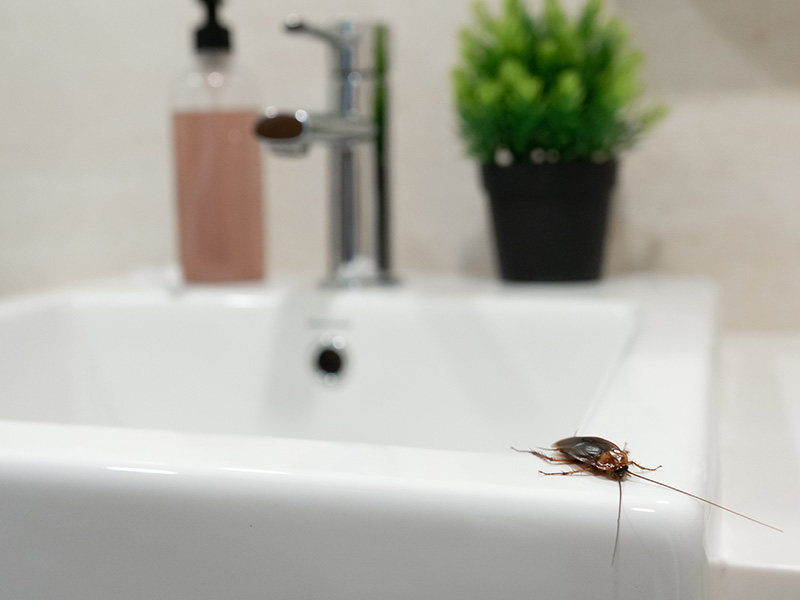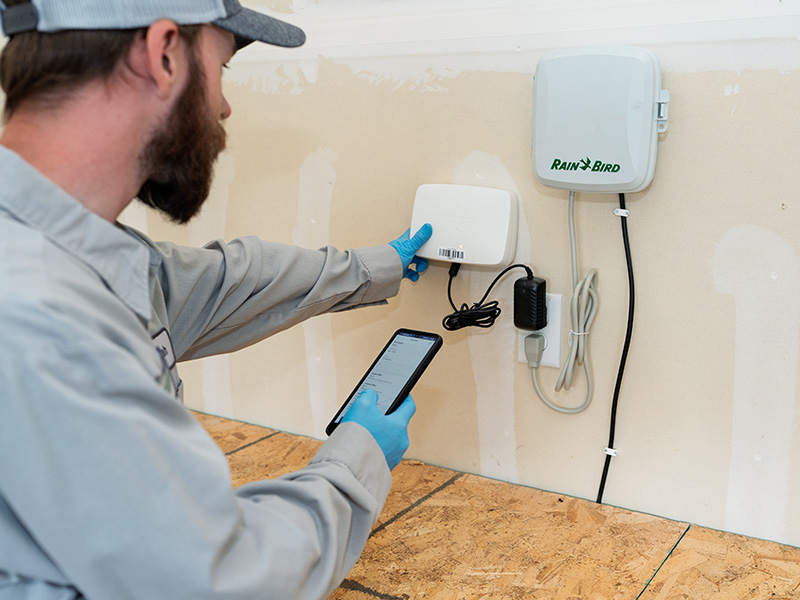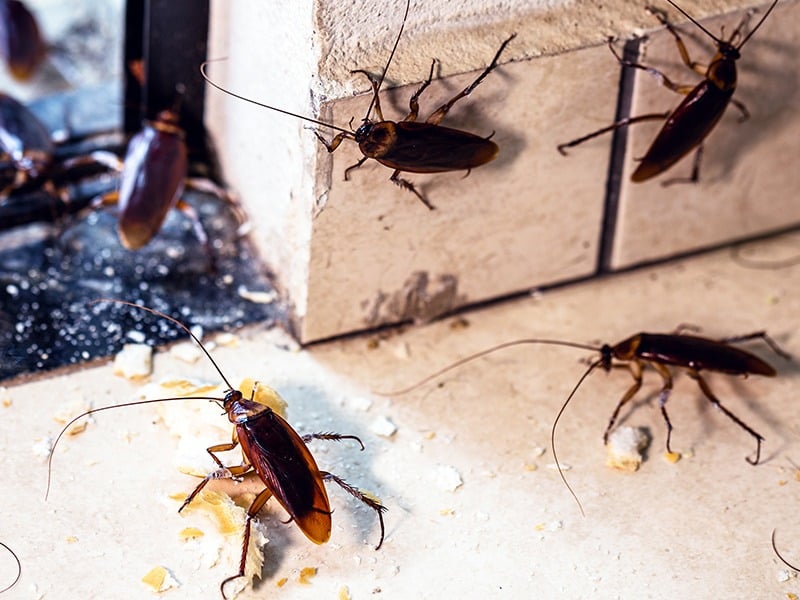What Is Hantavirus?
Considering the recent rise in Hantavirus activity in Arizona, which resulted in seven cases of Hantavirus Pulmonary Syndrome and three confirmed deaths, we must take some time to look at this illness-causing pathogen. We'll discuss what it is, how it spreads, the risks, and how to reduce the chances of exposure. Keep in mind that we are pest experts, not medical experts. While we will cover some of the medical aspects, our knowledge is in how pests spread viruses, not in the impact of viruses on the human body. In this article, we will focus on preventative methods. As always, we'd like to remind you that direct help is available. Northwest Exterminating provides pest control services in Queen Creek, Phoenix, and Tucson, as well as throughout Southern Arizona. We're happy to speak with you about your concerns about the Hantavirus.

A simple explanation of Hantavirus
If you search for Hantavirus on the internet, you'll see all kinds of fancy words such as zoonotic, Bunyaviruses, Ellioviricetes, and pathogenesis—but we'll keep things simple. Have you ever heard someone say, "I caught the bug that's going around."? It is a common saying and an apt description in many parts of the country. When we get the flu, common cold, or a virus, germs enter us, and our bodies fight to stop the invasion. If the “bugs” get the upper hand, we have symptoms until the battle is won. We may also feel symptoms that are caused by our bodies. For example, the release of histamine in the body causes itching, swelling, and redness.
In the United States, Hantavirus most commonly enters the body through the mouth and/or the nose through inhalation. If the microscopic "bugs" can reach the lungs, they may cause a serious illness called Hantavirus Pulmonary Syndrome. The tiny organisms infect the cells that line the blood vessels in the lungs, causing them to leak fluid. The leaking fluid from the blood vessels can then fill the lungs, making breathing difficult.
Hantavirus can also impact the heart. The damage caused can reduce the heart's ability to pump blood and circulate it throughout the body, resulting in low blood pressure and an inability for oxygen to reach the cells. When this occurs, it can rapidly lead to organ failure and death.
Hantavirus is a serious medical threat. If you are exposed and your body is not able to fight off the infection, severe and potentially life-threatening illness is possible.
How do people get Hantavirus?
We discussed how this virus enters the mouth and nose, but how does exposure happen? The answer lies in one of the big words we shared earlier: zoonotic. A zoonotic disease is a disease that is spread between animals and humans. Fortunately, the available pool of host animals is minimal.
The primary vector for Hantavirus is rodents such as mice and rats, particularly deer mice. The Hantavirus organisms are in infected rodents' saliva, urine, and fecal matter and are most often spread as tiny droplets that rise into the air. This occurs when humans sweep or vacuum contaminated areas or during rodent activity. Since this virus is airborne, you can catch it without seeing a mouse or a rat, so knowing the warning signs of rodent infestation is critical.
How to detect rodent activity
Since the primary concern with Hantavirus is linked to rodents, it is essential to consider the behavior of these animals. Mice and rats tend to get into homes, sheds, storage lockers, and other outbuildings, preferring secluded and somewhat cluttered spaces. They are also particularly fond of getting into crawl spaces underneath structures. Here are a few signs that rodents are active in these spaces:
- Rodent droppings - mice have tiny, shiny, dark droppings that look like black rice while rats have small dark brown or black pellets that are cylindrical.
- The scent of urine.
- Urine pillars made of debris soaked with rodent urine.
- Tiny, fluffy material tucked into recesses, gaps, or cavities.
- Rodent nests that are made from a variety of materials, including shredded paper, fabric, insulation, plastic, twigs, leaves, and other debris.
- Rodent footprints in dust, dirt or sand.
- Holes chewed in building materials and personal belongings.
When checking for these signs, you may also see mice or rats scurrying around in the dark. Use a flashlight and perform inspections during the day when these animals are less active.
If you find materials left by rodents, use caution when cleaning up after them. We strongly suggested wearing a ventilator and protective gloves. When finished, launder your clothing.
How to prevent exposure to Hantavirus
Management of rodent pressures will help reduce the risk of Hantavirus. You can take steps to keep mice and rats from lodging on your property.
- Clean up organic debris that these animals hide underneath.
- Keep trash receptacles as clean as possible, and always keep them covered.
- Remove rodent food options like seeds, nuts, fruit, and garbage.
- Trim the base of your plants to remove hiding places and refrain from planting low-lying vegetation.
- Rodent-proof your home and outbuildings to keep rats and mice from entering structures. Use expanding foam, caulking material, screens, wire mesh, and rodent guards.
Contact our team for rodent control in Phoenix, Tucson, & Southern AZ
Contact the Northwest Exterminating team if you need rodent prevention or control assistance. We don't just eliminate pest activity; we prevent it.
Our rodent control services include:
- Rodent trapping
- Den and/or harborage removal
- Rodent baiting
- Digital rodent monitoring
We also offer Desert Guard, an insect and rodent exclusion service that prevents pests from entering. It includes sealing entry points and installing physical barriers to deter insects and rodents.
Year-round home pest control for insects and rodents
In addition to the services noted above, Northwest Exterminating offers smart home pest control services that include digital rodent monitoring. Our state-of-the-art SMART monitoring system enables our team to identify rodent problems before they become infestations. Active 24/7/365, the system alerts us when rodent activity is detected; you don’t have to worry about calling us!
Contact Northwest Exterminating today if you’re ready to protect your family and home from rodents!

Testimonials
Request Your FREE Estimate
Have questions or need help getting rid of pests? Simply complete the form below or give us a call!
Pest Solutions For Homes & Businesses
Northwest Exterminating provides pest control services in the Phoenix metro and Tucson, as well as throughout Southern Arizona, that target pests found in our region's unique desert environment. We promise personalized service and state-of-the-art techniques for all your exterminating needs.
Any Pest, On Time, Guaranteed.



